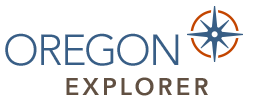 INSTITUTE FOR NATURAL RESOURCES
INSTITUTE FOR NATURAL RESOURCESYou are here
Land Use
Land Use
Land Use and Planning
LOADING...

Please be patient.
-
Continuous Data Integration for Land Use and Transportation Planning and Modeling
There is an urgent need for improved models that address the interdependencies between land use and transportation, and considerable new work is underway to develop such models in Oregon and elsewhere. These...
-
Evaluation of Transportation Microenvironments Through Assessment of Cyclysts' Exposure to Traffic-Related Particulate Matter
It is well established that vehicles powered by carbon-based fuels (e.g. gasoline, diesel) have a negative impact on air quality, especially in urban centers. Traditionally, air quality conformity studies...
-
From Transit Stop to Urbanity Node: Field Audit for Measuring Livability at the Transit Stop
This research proposal addresses issues of livability at the transit stop. American transit systems have historically been “shoehorned” into existing street networks designed predominantly for cars and...
-
Toward a Spatial-Temporal Measure of Land-Use Mix
Urban planning and public-health research has long been interested in the connection between land-use mix and travel. Interest from urban planners stems from the potential of transportation efficiency gains...
-
The Boulevard Study: From Arterial to Asset -- Examining the Role of the Multi-Way Boulevard in Coordinated Transportation...
Cities that were once considered the most-desired places to live or for businesses to locate are now seeking ways to unclog their increasingly congested roadways and regain their quality of life. U.S....
-
The Effects of Commuter Rail on Population Deconcentration and Commuting: A Salt Lake City Case Study
All transportation systems have the ability to transform human settlement patterns, which can affect a range of social, economic and environmental issues. Considering investments in rail infrastructure have...
-
Contextual Influences on Trip Generation
There is national interest in building data that expands upon the existing Institute of Transportation Engineers (ITE) trip generation rates to include sites located in a multi-modal context. Current ITE rates...
-
A Brief Portrait of Multimodal Transportation Planning in Oregon and the Path to Achieving It, 1890-1974
This project was designed to outline transportation chapters of a planned written history of Oregon land use planning, written in ways that would make the transportation planning profession relevant to a...
-
Development and Sensitivity Testing of Alternative Mobility Metrics
The Oregon Highway Plan’s (OHP) mobility policies guide various planning and programming activities of the Oregon Department of Transportation (ODOT). Among these activities are ODOT’s land use change...
-
More Urban Form, Fewer Auto Trips
Trip generation refers to the number of vehicle trips that are predicted to originate in a given zone. The Institute of Transportation Engineers (ITE) publishes standard trip generation rates for various land...











